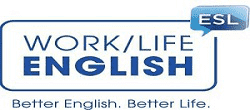For non-native speakers aspiring to become ESL (English as a Second Language) teachers in America, the journey can be both challenging and rewarding. This guide aims to provide valuable insights and practical steps to help non-native teachers successfully navigate this career path. By understanding the benefits of Vocational ESL (VESL) programs and exploring the growing interest in certification programs, non-native teachers can effectively prepare for a fulfilling career in ESL teaching. These programs offer a range of benefits, including workforce preparation, on-the-job terminology learning, and practical teaching experience.
The Benefits of Vocational ESL Programs
Preparing for the Workforce and Entry-Level Jobs
VESL programs are specifically designed to equip non-native speakers with the skills necessary to enter the American workforce. These programs focus on practical language use, enabling students to communicate effectively in a professional environment.
1.Real-World Applications: VESL programs integrate language learning with vocational training, allowing students to apply their language skills in real-world scenarios. This practical approach helps students gain confidence and competence in their chosen fields.
2.Industry-Specific Language: By focusing on the specific terminology and communication styles used in various industries, VESL programs prepare students to understand and use the language relevant to their careers. This can be particularly beneficial for entry-level jobs where clear and accurate communication is essential.
3.Cultural Understanding: VESL programs often include cultural training, helping students understand the nuances of American workplace culture. This knowledge can be crucial for effective communication and professional integration.
Learning On-the-Job Terminology
One of the key advantages of VESL programs is the emphasis on industry-specific language. This focus ensures that students are not only learning general English but also the specific terms and phrases used in their chosen professions. Mastering this terminology is crucial for effective communication and professional competence in the workplace.
Contextual Learning
VESL programs teach terminology in the context of students' future jobs, making it easier to remember and use. By learning words and phrases in relevant settings, students can more effectively understand and apply their language skills.
For instance:
- Healthcare Workers: A VESL program tailored for healthcare professionals would include medical terminology such as "diagnosis," "treatment plan," and "medication administration." It would also cover language used in patient interactions, like explaining procedures, discussing symptoms, and providing care instructions. Administrative communication, including filling out medical forms and recording patient information, would also be part of the curriculum.
- Hospitality Industry: For those entering the hospitality sector, a VESL program might cover terminology related to hotel operations, customer service, and event planning. Students would learn how to greet guests, handle reservations, and manage customer complaints. Specific phrases like "check-in/check-out," "room service," and "event coordination" would be emphasized.
- Construction: In a construction-focused VESL program, students would learn terms like "blueprint," "scaffolding," "safety regulations," and "material procurement." This program would also include language for on-site communication, such as coordinating with team members, understanding project timelines, and discussing safety procedures.
Practical Exercises
VESL programs often incorporate role-playing, simulations, and other practical exercises that mimic real workplace scenarios. These activities help students practice using new vocabulary and phrases in a supportive environment, building their confidence and fluency.
Examples include:
- Role-Playing: Students might participate in role-playing exercises where they act out common workplace situations. For a retail-focused program, this could involve practicing customer interactions, such as assisting a customer with a return or explaining a product feature.
- Simulations: Simulated environments allow students to apply their language skills in realistic settings. For instance, a program for automotive technicians might include simulations of diagnosing car problems and explaining repair procedures to customers
- Mock Interviews: To prepare students for job interviews, VESL programs often include mock interviews. These exercises help students practice answering common interview questions and using professional language confidently.
Expert Guidance
Instructors in VESL programs are often professionals with experience in the relevant industries. Their insights and feedback can be invaluable for students learning new terminology. These instructors can provide real-world examples and practical advice that enhance the learning experience.
For example:
- Healthcare Professionals: Instructors who are experienced nurses or doctors can offer firsthand insights into patient care and medical procedures. They can share practical tips on effective communication with patients and colleagues, helping students understand the nuances of medical terminology and its application.
- Business Experts: In a VESL program focused on business English, instructors with corporate backgrounds can teach students how to navigate office environments, draft professional emails, and participate in meetings. Their industry experience can provide students with a deeper understanding of business communication and etiquette.
- Technical Trades: For students entering technical fields such as engineering or IT, instructors with industry experience can explain complex terminology and processes. They can guide students through technical documentation, troubleshooting steps, and effective communication with team members and clients.
By focusing on industry-specific language, providing practical exercises, and offering expert guidance, VESL programs ensure that students are well-prepared to communicate effectively in their chosen professions. This comprehensive approach not only enhances their language skills but also boosts their confidence and readiness for the workforce.
The Rise of Certification Programs
In recent years, there has been a growing interest in certification programs compared to traditional four-year institutions. This trend is particularly notable in the field of ESL teaching, where practical skills and qualifications can often be more important than academic degrees.
Advantages of Certification Programs
1. Cost-Effective: Certification programs are generally more affordable than preparation for a four-year degree program. This makes them accessible to a wider range of students, including those who may be working or have other financial commitments.
2. Time-Efficient: Certification programs can often be completed in a shorter time frame than traditional degrees. This allows students to enter the workforce more quickly and start earning income and gaining practical experience.
3. Focused Curriculum: Certification programs tend to have a more focused curriculum, concentrating on the specific skills and knowledge needed for ESL teaching. This targeted approach can be more effective for students who know their career goals.
Recommended VESL Programs
Here are some highly regarded VESL programs that can help non-native teachers prepare for a career in ESL:
- City College of San Francisco VESL Program
- Santa Monica College VESL Program
- Los Angeles City College VESL Program
- Wake Technical Community College VESL Program
- Bellevue College VESL Program
Enhance Your Learning with WorkLife English
To further support your journey in VESL programs and ESL teaching, consider using materials from WorkLife English. Our resources are designed to enhance language learning and provide practical tools for real-world applications. From vocabulary-building exercises to cultural understanding guides, our materials can help you gain the confidence and skills needed for a successful career in ESL teaching.

